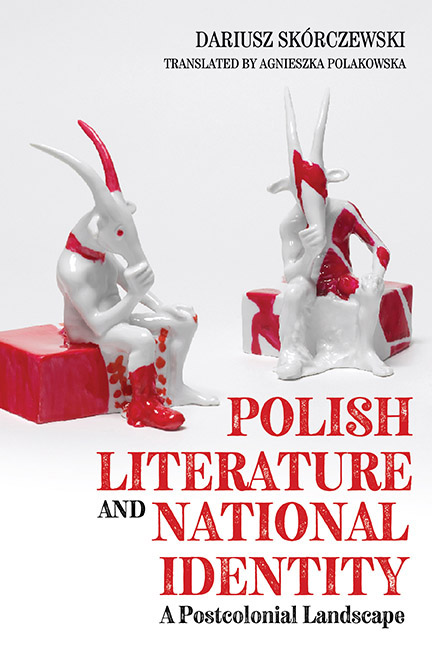Book contents
- Frontmatter
- Dedication
- Contents
- Acknowledgments
- Prologue: How It All Began
- 1 Through the Lens of Humanism, with a View to Transcendence
- 2 Postcolonialism in Poland
- 3 National Identity in a Postcolonial Framework: Necessary Clarifications and Opening Suggestions
- 4 Literature as Compensation: Comprador Intelligentsia vis-à-vis the Hegemonic Discourse—Preliminary Theoretical Remarks
- 5 Confronting the Romantic Legacy
- 6 The Natives’ Exclusion by the Empire's Poet? (Adam Mickiewicz, The Crimean Sonnets)
- 7 Identity as an Object of Inquiry (Pawel Huelle's Castorp)
- 8 The (East-)Central European Complex (Andrzej Stasiuk, On the Road to Babadag and Fado)
- 9 Colonized Poland, Orientalized Poland: Postcolonial Theory and the “Other Europe”
- 10 Slavic Issues with Identity: Marginal Notes to Maria Janion's Uncanny Slavdom
- 11 The Melancholia of Borderlands Discourse
- Afterword: Three Warnings
- Notes
- Bibliography
- Index
10 - Slavic Issues with Identity: Marginal Notes to Maria Janion's Uncanny Slavdom
Published online by Cambridge University Press: 25 March 2020
- Frontmatter
- Dedication
- Contents
- Acknowledgments
- Prologue: How It All Began
- 1 Through the Lens of Humanism, with a View to Transcendence
- 2 Postcolonialism in Poland
- 3 National Identity in a Postcolonial Framework: Necessary Clarifications and Opening Suggestions
- 4 Literature as Compensation: Comprador Intelligentsia vis-à-vis the Hegemonic Discourse—Preliminary Theoretical Remarks
- 5 Confronting the Romantic Legacy
- 6 The Natives’ Exclusion by the Empire's Poet? (Adam Mickiewicz, The Crimean Sonnets)
- 7 Identity as an Object of Inquiry (Pawel Huelle's Castorp)
- 8 The (East-)Central European Complex (Andrzej Stasiuk, On the Road to Babadag and Fado)
- 9 Colonized Poland, Orientalized Poland: Postcolonial Theory and the “Other Europe”
- 10 Slavic Issues with Identity: Marginal Notes to Maria Janion's Uncanny Slavdom
- 11 The Melancholia of Borderlands Discourse
- Afterword: Three Warnings
- Notes
- Bibliography
- Index
Summary
The cultural discourse of Central and Eastern Europe (if we accept that such a homogeneous discourse exists at all) has been described by Roumiana Deltcheva as continually “permeated by one dominant metaphor of intent, namely the road to Europe. In spite of the differentiation of manifestations the symbol has undergone in the past ten years, the semantic scope encompasses a common perception of peripherality, marginality, isolation, outsidedness.”
In response to this sense of exclusion, Maria Janion, a renowned Polish scholar of Romanticism, proposes her own “road to Europe,” which she describes as postcolonial, in the book Niesamowita Słowiańszczyzna (Uncanny Slavdom). Before taking a closer look at some aspects of her proposal, a look at the continuation of Deltcheva's reflections is in order: “Geographically within Europe, yet culturally excluded from it, the countries of Central and East Europe are still in a process of defining their identity based on a double binary opposition: by consciously differentiating themselves from the former center of Soviet political power, and equally strongly attempting to integrate themselves with the Western center of cultural legitimization.” In identifying the West as a key vector orienting East-Central European cultural space, Deltcheva picks up on a frequent and characteristic, not so say paradigmatic, tendency in post-Communist societies. Janion's intellectual proposal seems to pursue a different objective. What are the results of her engagement with postcolonial criticism?
Applying postcolonial theory to the East-Central European context is a tempting idea, but it does come with some risks. On the one hand, postcolonialism frames the history of civilizations in categories of conquest, hegemony, subordination, resistance, and emancipation, which allows, at least theoretically, for a global traverse of different histories and geographical areas that links and amalgamates them into one subject field. The benefit of such a universalizing approach lies in identifying and explicating the characteristic, recurrent structures of political, cultural, and existential experience that are bound up with foreign domination. On the other hand, the planting of postcolonial theoretical concepts in an East-Central European ground can become a purely mechanical procedure that boils down to substituting phenomena specific to a given society, culture, territory, and historical period with uniformizing categories.
- Type
- Chapter
- Information
- Polish Literature and National IdentityA Postcolonial Landscape, pp. 193 - 207Publisher: Boydell & BrewerPrint publication year: 2020



